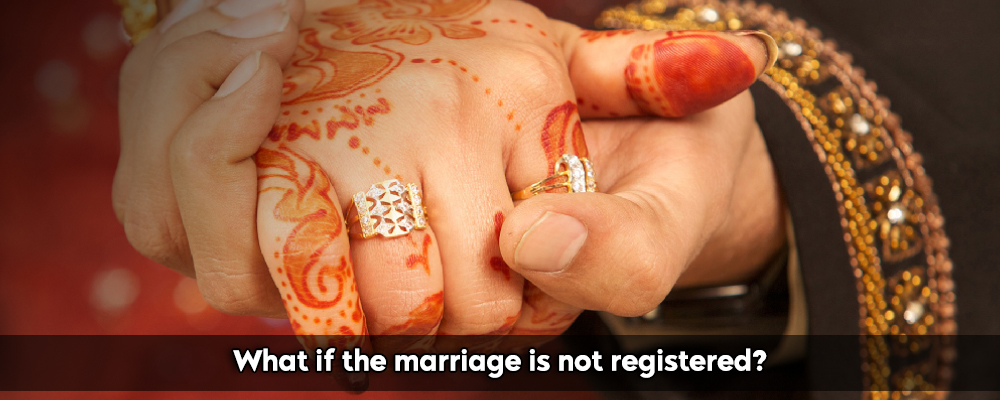A marriage gains legal recognition when it is registered, which also connects it to related laws and gives it legal status. Even though it is becoming increasingly commonplace in India, many couples still prefer to have their marriage formally sealed in religious rites as opposed to using government-sponsored registration. The truth is that it is still unclear what the law says about marriage registration. India has a lot of laws governing marriage. Legislation varies widely regarding the necessity of registering a marriage, even though most agree on elements such as the parties’ marriageable age and the need for approval from a person qualified to give it.
Marriage registration is not required under the Muslim or Christian marriage acts. For the safety of both partners in a marriage, registration is essential. It gives the partnership legal standing and might be useful when attempting to get rights connected to marriage.
Need A Legal Advice
The internet is not a lawyer and neither are you. Talk to a real lawyer about your legal issue

Is marriage registration required in India?
India is a multicultural country home to many different ethnicities and religions. They are all subject to different laws and policies. Furthermore, our predecessors tried to avoid discussing marriage itself when they were drafting the Indian Constitution because it was a delicate subject for both the nation and its citizens. Before we get into the specifics of the registration requirement and the obligatoriness that goes along with it, let us first clarify what registration is. Although it does not make the requirement mandatory for parties to a marriage, Section 8 of the Hindu Marriage Act, 1955 lays forth the requirement for registration in a Hindu marriage. There are five subsections in this section, which are explained in layman’s words below:
- According to Section 8(1), the State Governments will have the authority to establish regulations demonstrating that the parties to the marriage have complied with the requirements set forth by the Hindu Marriage Register and that the marriage’s related documentation should be retained by the parties for future use as proof of the unions.
- According to Section 8(2), the State Governments are in charge of making sure that the parties to the marriage have followed the guidelines outlined in Section 8(1). Should there be any indications of a breach by the parties, the State may impose a fine of twenty-five rupees on the parties.
- According to Section 8(3), the State Legislatures should receive the regulations discussed in Section 8(1) after they are established.
- According to Section 8(4), the Hindu Marriage Register must verify the marriage in question and gather enough information about it to demonstrate its legality.
- According to Section 8(5), it is summarised that if a Hindu marriage is not registered during the course, it would not have any bearing on the legality of the Section.
Both parties involved in the marriage must be present for the registration process to be completed effectively. In the Nishana Mol v. Alappuzha Municipality case, the court decided that marriage registration would only be allowed to proceed and be considered necessary if the registrar of the marriage was unsure or hesitant about the identities of either party.
In other words, the legality of a marriage is established by its registration, which also binds it with all relevant legislators. Another way to safeguard the parties to the marriage is by registration. It is impossible to overlook the long-standing patriarchal culture that has dominated Indian society and given men the upper hand in all spheres of life. In India, marriage has been the target of social difficulties such as mental and physical harassment, feudalism, and a host of other issues. According to conventional wisdom, the goals of marriage are to have children and to provide the groom the freedom to do as and when he pleases.
These are the real justifications behind India’s registration law, even though many of these reasons may seem nebulous and pointless when discussing registration. The Central Government introduced the Compulsory Registration of Marriage Bill, of 2005, with the understanding that the citizens of this nation need to be informed about the laws and social structure that govern them. To guarantee traceability across the board, the Law Commissioner of India also proposed connecting marriage registration with Aadhaar identification.
Lead India, including free legal advice and internet information, provides a variety of legal services. Here, you can ask a legal question and talk to a lawyer.





 Talk to a Lawyer
Talk to a Lawyer